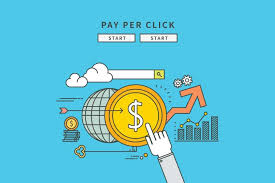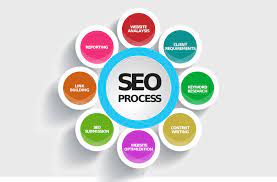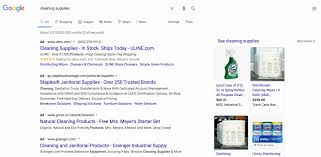The Power of PPC in Digital Marketing
Pay-Per-Click (PPC) advertising is a powerful tool in the world of digital marketing. It allows businesses to reach their target audience effectively and drive relevant traffic to their websites. PPC campaigns are highly measurable, flexible, and can deliver quick results when managed correctly.
What is PPC?
PPC is a form of online advertising where advertisers pay a fee each time their ad is clicked. This model allows businesses to bid for ad placement in search engine results or on websites that display ads. The most popular platform for PPC advertising is Google Ads, where advertisers bid on keywords related to their business.
The Benefits of PPC
- Targeted Reach: With PPC, businesses can target specific demographics, locations, and interests, ensuring that their ads are seen by the right audience.
- Measurable Results: PPC campaigns provide detailed metrics that allow advertisers to track performance and ROI accurately.
- Quick Results: Unlike organic search efforts, PPC campaigns can generate immediate traffic and results for businesses looking to increase visibility online.
- Budget Control: Advertisers have full control over their budget and can adjust it based on performance and goals.
- Brand Visibility: PPC ads appear at the top of search engine results pages, increasing brand visibility and awareness among users.
Tips for Successful PPC Campaigns
- Keyword Research: Conduct thorough keyword research to identify relevant terms that your target audience is searching for.
- Compelling Ad Copy: Create engaging ad copy that entices users to click on your ads and visit your website.
- Landing Page Optimization: Ensure that your landing pages are relevant to your ads and provide a seamless user experience.
- Ongoing Monitoring: Continuously monitor and optimise your campaigns based on performance data to improve results over time.
- A/B Testing: Test different ad creatives, headlines, and calls-to-action to identify what resonates best with your audience.
In conclusion, PPC advertising is a valuable tool for businesses looking to boost their online presence and drive targeted traffic to their websites. By implementing effective PPC campaigns and following best practices, businesses can achieve significant results in the competitive digital landscape.
Understanding PPC in Digital Marketing: Key Questions and Insights
- What is PPC advertising and how does it work?
- What are the benefits of using PPC in digital marketing?
- How can businesses effectively target their audience through PPC campaigns?
- What are the key metrics to track and measure the success of a PPC campaign?
- What are some best practices for optimizing PPC campaigns to achieve better results?
What is PPC advertising and how does it work?
PPC advertising, short for Pay-Per-Click advertising, is a digital marketing strategy where advertisers pay a fee each time their ad is clicked. This model allows businesses to bid for ad placement in search engine results or on websites that display ads. When a user searches for specific keywords related to the advertiser’s business, the ads are displayed prominently at the top of search engine results pages. The position of the ad is determined by a combination of factors, including the bid amount and ad relevance. When a user clicks on the ad, the advertiser pays the search engine or website hosting the ad. PPC advertising works on an auction-based system, where advertisers compete for ad placement based on their bids and quality score. This method ensures that businesses can reach their target audience effectively and drive relevant traffic to their websites while only paying when users engage with their ads.
What are the benefits of using PPC in digital marketing?
One of the most frequently asked questions in digital marketing is, “What are the benefits of using PPC?” Pay-Per-Click (PPC) advertising offers a range of advantages for businesses seeking to enhance their online presence. With PPC, businesses can target specific audiences, track performance with detailed metrics, achieve quick results, have control over their budget, and increase brand visibility. These benefits make PPC a valuable tool for driving relevant traffic to websites and achieving measurable results in the competitive digital landscape.
How can businesses effectively target their audience through PPC campaigns?
To effectively target their audience through PPC campaigns, businesses need to start by conducting thorough research to understand their target demographic, interests, and online behaviours. Utilising keyword research tools can help identify relevant search terms that potential customers are using. Crafting compelling ad copy that resonates with the target audience and aligns with their search intent is crucial. Businesses should also utilise targeting options provided by PPC platforms to narrow down their audience based on factors such as location, demographics, and interests. Regularly monitoring campaign performance metrics and making data-driven adjustments can further enhance targeting precision and ensure that PPC ads reach the right audience at the right time.
What are the key metrics to track and measure the success of a PPC campaign?
Tracking and measuring key metrics is essential for evaluating the success of a PPC campaign in digital marketing. Some of the crucial metrics to monitor include Click-Through Rate (CTR), Conversion Rate, Cost Per Click (CPC), Return on Ad Spend (ROAS), and Quality Score. CTR indicates the percentage of users who clicked on the ad after seeing it, while Conversion Rate measures the percentage of users who completed a desired action, such as making a purchase or filling out a form. CPC helps in understanding the cost efficiency of clicks, while ROAS calculates the revenue generated compared to the amount spent on ads. Quality Score reflects the relevance and quality of ads, keywords, and landing pages. By analysing these key metrics, advertisers can make informed decisions to optimise their PPC campaigns for better performance and return on investment.
What are some best practices for optimizing PPC campaigns to achieve better results?
When it comes to optimising PPC campaigns for better results in digital marketing, several best practices can make a significant difference. Conducting thorough keyword research to target relevant terms, creating compelling ad copy that resonates with the audience, and ensuring landing pages are optimised for conversions are crucial steps. Ongoing monitoring of campaign performance data allows for adjustments to be made in real-time to improve results. A/B testing different ad elements and continuously refining strategies based on data insights are also key practices for achieving optimal outcomes in PPC campaigns. By following these best practices diligently, businesses can enhance the effectiveness of their PPC efforts and drive better results in their digital marketing initiatives.



